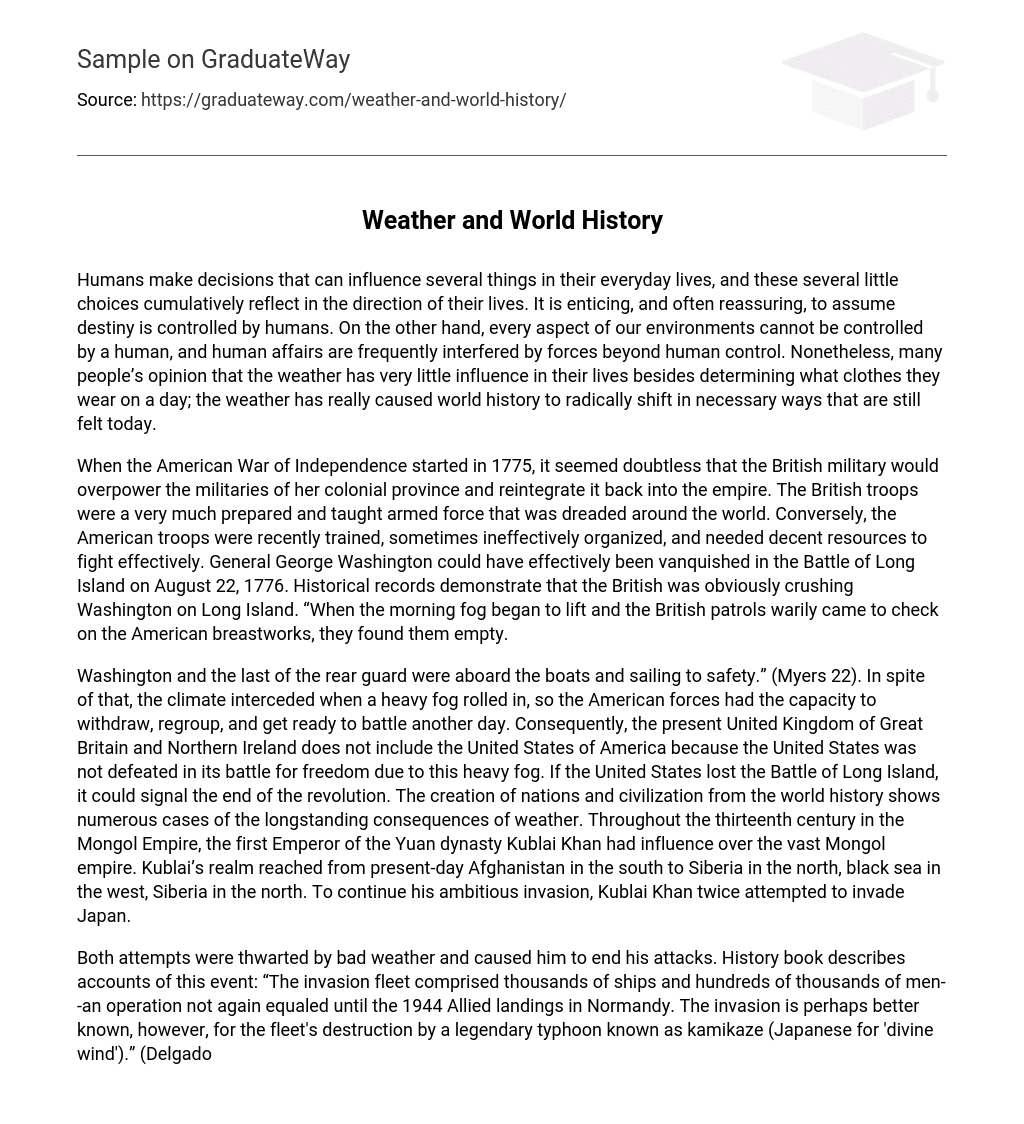Humans make decisions that can influence several things in their everyday lives, and these several little choices cumulatively reflect in the direction of their lives. It is enticing, and often reassuring, to assume destiny is controlled by humans. On the other hand, every aspect of our environments cannot be controlled by a human, and human affairs are frequently interfered by forces beyond human control. Nonetheless, many people’s opinion that the weather has very little influence in their lives besides determining what clothes they wear on a day; the weather has really caused world history to radically shift in necessary ways that are still felt today.
When the American War of Independence started in 1775, it seemed doubtless that the British military would overpower the militaries of her colonial province and reintegrate it back into the empire. The British troops were a very much prepared and taught armed force that was dreaded around the world. Conversely, the American troops were recently trained, sometimes ineffectively organized, and needed decent resources to fight effectively. General George Washington could have effectively been vanquished in the Battle of Long Island on August 22, 1776. Historical records demonstrate that the British was obviously crushing Washington on Long Island. “When the morning fog began to lift and the British patrols warily came to check on the American breastworks, they found them empty.
Washington and the last of the rear guard were aboard the boats and sailing to safety.” (Myers 22). In spite of that, the climate interceded when a heavy fog rolled in, so the American forces had the capacity to withdraw, regroup, and get ready to battle another day. Consequently, the present United Kingdom of Great Britain and Northern Ireland does not include the United States of America because the United States was not defeated in its battle for freedom due to this heavy fog. If the United States lost the Battle of Long Island, it could signal the end of the revolution. The creation of nations and civilization from the world history shows numerous cases of the longstanding consequences of weather. Throughout the thirteenth century in the Mongol Empire, the first Emperor of the Yuan dynasty Kublai Khan had influence over the vast Mongol empire. Kublai’s realm reached from present-day Afghanistan in the south to Siberia in the north, black sea in the west, Siberia in the north. To continue his ambitious invasion, Kublai Khan twice attempted to invade Japan.
Both attempts were thwarted by bad weather and caused him to end his attacks. History book describes accounts of this event: “The invasion fleet comprised thousands of ships and hundreds of thousands of men–an operation not again equaled until the 1944 Allied landings in Normandy. The invasion is perhaps better known, however, for the fleet’s destruction by a legendary typhoon known as kamikaze (Japanese for ‘divine wind’).” (Delgado 59). After this surprising defeat, Kublai Khan could not fulfill his desire. He died before he could stage a third invasion of the Japanese, however, he died before he could fulfill this ambition. These winds changed history, the Mongol Empire might have conquered Japan. With deep aftereffect for Asian and world history, Japan would have lost its identity as a sovereign culture.





